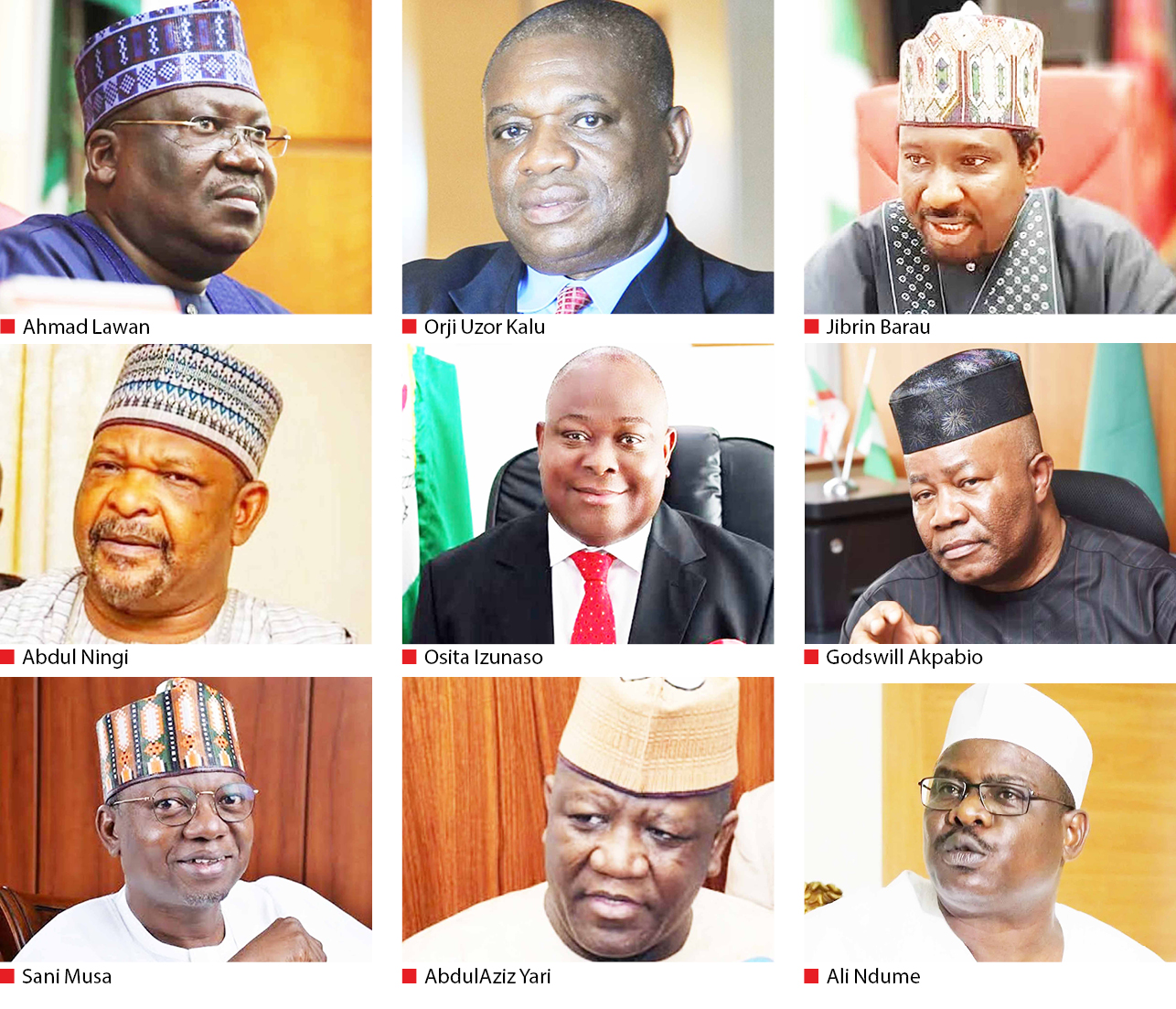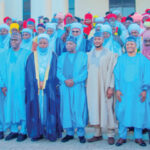There have been different permutations in the race for the leadership of the 10th National Assembly, which would be inaugurated in June.
While some analysts have based their permutations on religion, others have rooted for regional consideration, among others.
However, some have argued that in considering them, the country must not sacrifice other virtues, including but not limited to competence, character, loyalty, capacity, service, experience, and acceptability by other lawmakers, among others.
The position of the Senate president and Speaker of the House of Representatives as leaders of the legislature are crucial in sustaining democracy by formulating laws and policies, as well as acting as a check to other arms of government- the executive and the judiciary.
From the results of the 2023 election, at least eight political parties will be fairly represented in the new National Assembly, making it imperative to get a mature Senate president who would be acceptable to all members and can lead other lawmakers in robust debate to fulfill the renewed hope mandate of the Asiwaju Bola Tinubu presidency.
The All Progressives Congress (APC) has won 54 seats so far, while the Peoples Democratic Party (PDP) has 27.
Others are Labour Party with six seats, New Nigeria Peoples Party, (NNPP), two and the Social Democratic Party (SDP), two, while the Young Progressives Party (YPP) and the All Progressives Grand Alliance (APGA) have one seat each.
While it is not yet clear how the Senate president would emerge, more than seven senators from the APC, which has a majority in the chamber, have indicated interest.
Among them are the serving Senate president, Ahmad Lawan (Yobe North); former Deputy Senate leader, Abdul Ningi (Bauchi Central); Senate Chief Whip, Orji Uzor Kalu (Abia North); Senator Jibrin Barau (Kano North); Sen Godswill Akpabio (Akwa Ibom North-West); Sen Abdul-Aziz Yari (APC, Zamfara West); Sen Sani Musa (Niger East); Sen Ali Ndume (Borno South) and Sen Osita Izunaso (Imo West).
There are also insinuations that former APC chairman and Edo State governor, Adams Oshiomhole (Edo North), as well as the Ebonyi State governor, Dave Umahi (Ebonyi South), who would be first-time legislators when the National Assembly is inaugurated, are also interested in the position. The ranking rule would have to be jettisoned for them to succeed.
Ahmad Lawan
The current Senate president is arguably one of the most experienced lawmakers in the country. He has been a member of the National Assembly since the return of democracy in 1999. However, Lawan is from the same zone as the vice president-elect, Senator Kashim Shettima. Critics have also labelled the 9th National Assembly presided by Lawan as a rubberstamp, a claim the senator always dismissed, insisting that the assembly decided to collaborate with the executive for the betterment of the country.
Abdul Ningi
It is very unlikely that the former deputy Senate leader would be able to secure the coveted seat as he is a member of the PDP, which does not enjoy the majority in the Senate.
Orji Uzor Kalu
Kalu has adopted the ‘Emilokan’ (my turn) slogan of the president-elect, Asiwaju Bola Tinubu, to push his ambition, arguing that the South East deserves the position for justice and equity. His supporters are also of the opinion that electing the former Abia State governor, who is a Christian, as Senate president, would also bring balance to the Muslim-Muslim ticket of the APC.
However, there are questions about corruption cases against Kalu, as well as if the South East contributed enough votes to the success of the APC in the poll.
Osita Izunaso
The senator from Imo State, who believes he is the most senior lawmaker from the South East and South South zones, has argued that the South East should be allowed to produce the Senate president for the 10th Assembly for justice, fairness and equity.
His supporters believe that the former APC national organising secretary has the experience and capacity needed to ensure stability and a cordial working relationship between the executive and legislature, having been a lawmaker since 2003.
However, it is unclear if Izunaso enjoys the acceptability needed to lead the Senate, which would be populated by at least eight political parties.
Barau Jibrin
The chairman of the Senate Committee on Appropriations has a wide- ranging parliamentary experience, having been elected the third time into the Senate.
He was elected into the House of Representatives in 1999 when he represented the Tarauni federal constituency of Kano State. Senator Barau has served in several sensitive executive and legislative positions, which bear eloquent testimony to his quality of leadership and acceptance.
His supporters are of the opinion that as the only senator of the APC from Kano State who weathered the Kwankwasiya storm, rightly deserves to be elected as Senate president to shore up the dwindling influence of the ruling party in the state.
They also argued that his zone – North West – contributed the most votes for the victory of the APC in the February 25 general elections, and therefore, should be considered and compensated over others with less or little or no contribution. They added that the APC must focus on rewarding hard work over other compensatory sentiments, such as religion and geographical sentiments.
However, the major argument against Barau has been sharing the same faith with Tinubu and Shettima.
Godswill Akpabio
Akpabio is a strategist who cannot be wished away. As a first-timer in 2015, Akpabio displaced a ranking senator, James Manager, to become the Senate Minority Leader, the position he held until he defected to the APC.
The former Akwa Ibom State governor has maintained that he is in the race to win and has no intention of stepping down.
Abdul-Aziz Yari
Although the former Zamfara governor would be a first-timer in the Senate, he is not new to the National Assembly as he represented Anka/Talata Mafara federal constituency from 2007 to 2011.
However, religion is expected to also be one of the factors against the former chairman of the Nigeria Governors’ Forum
Sani Musa
The Niger senator, who is in the race to succeed Lawan, has reportedly hinted of his willingness to respect the zoning arrangement of his party and consider the deputy Senate president position if the zoning arrangement for the number 3 position does not favour the North.
Ali Ndume
The ranking senator contested against the current Senate president, Lawan in 2019 but was not successful.
It is very unlikely that he will be successful this time, considering the argument for religion and regional consideration. He is from the same zone and state with the vice president-elect, Senator Kashim Shettima.
Contestants await APC, Tinubu on zoning
While all the interested senators have started campaigning, the APC and the president-elect, Tinubu, are expected to play major roles in the choice of the leadership of the National Assembly to avoid a repeat of the 2015 scenario, which led to the emergence of Senator Bukola Saraki.
It is very unlikely that Tinubu and Shettima, who are former senators, would allow a repeat. The questions on the lips of Nigerians are: Would Tinubu anoint a preferred candidate? Would the party zone the leadership positions? Will it allow for an open-play for all the interested candidates?

 Join Daily Trust WhatsApp Community For Quick Access To News and Happenings Around You.
Join Daily Trust WhatsApp Community For Quick Access To News and Happenings Around You.


